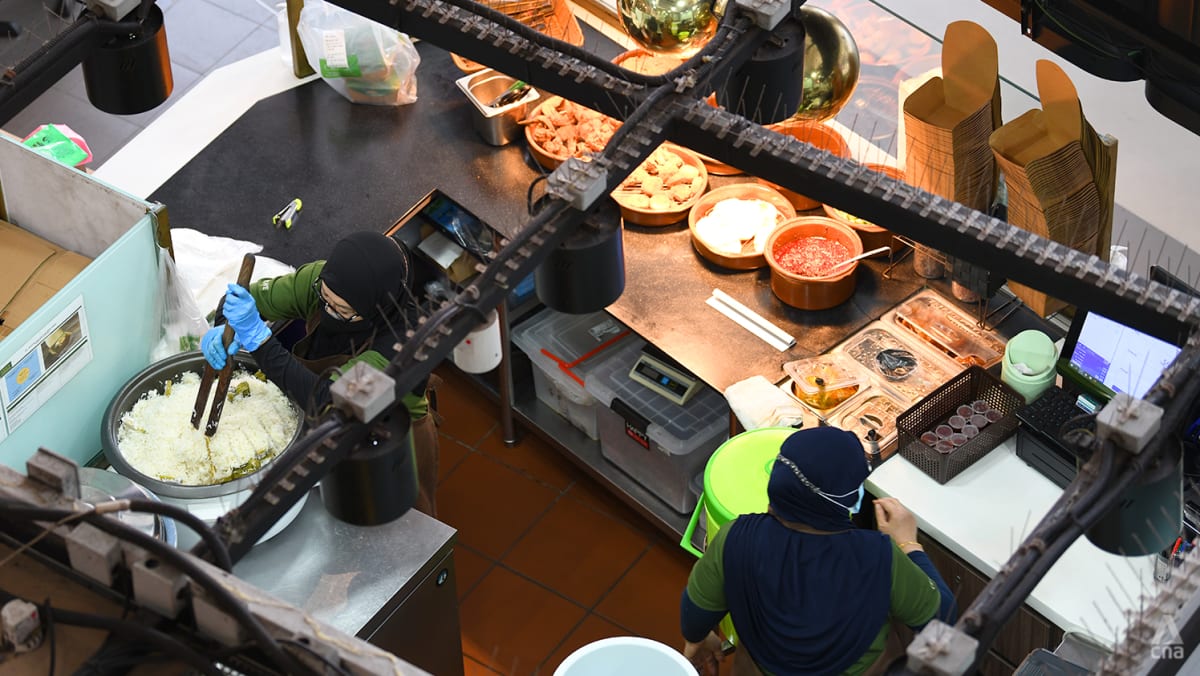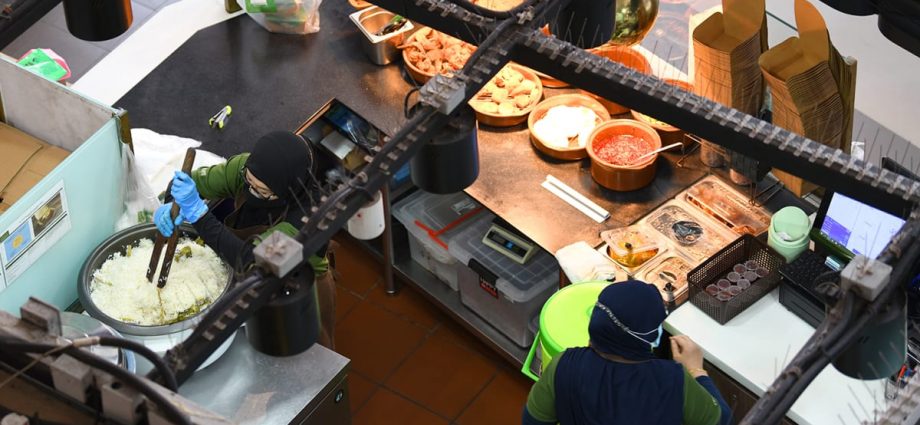
The wage recommendations are split into two categories. Category A comprises quick-service food businesses and supermarkets that have ready-to-eat stations, while category B is for full-service restaurants, caterers and central kitchens.
Businesses will have to pay food or drink stall assistants in category A at least S$1,750 a month from Mar 1, while restaurants or caterers in category B will need to pay kitchen assistants at least S$1,850 per month.
These figures include meal or transport allowances and incentives, but exclude overtime pay.
The Government has accepted the recommendations in the progressive wage model for the sector.
CATEGORY A, CATEGORY B
TCF chair and NTUC U SME director Yeo Wan Ling said there was a need to create two categories because the food services industry is very diverse.
“You have all the way from hawkers, to the most finest of dining restaurants,” she said, noting that these businesses have different business models with different job roles.
Mr Andrew Tjioe, a representative of SNEF, said small businesses would not be able to survive if they were required to adopt the same standards as restaurants.
“If they cannot survive, more people will be out of jobs and the very people that we would like to help will suffer,” he said.
There will be a six-month transitional period from Mar 1 in which the Ministry of Manpower (MOM) will not take enforcement action to give employers time to understand the requirements.
Workers at all levels covered by the progressive wage model must receive S$165 in yearly increments in March 2024 and 2025, meaning that those at lower rungs will enjoy a bigger percentage increase.
Senior cooks and managers in category B are usually paid more than the bottom 20th income percentile and should be left to market forces, TCF said. The committee will review the progressive wage model in 2025 to determine the recommended baseline wages for workers.
Mr Tjioe said that the S$165 increase is a minimum suggestion that is subject to market forces.
“If you look at the supply and demand of workers in the F&B sector, there’s a lot of demand but very, very short of supply,” he said. “I know many restaurants are offering much, much more than that.”
The expansion of the progressive wage model to the food services industry was announced by Prime Minister Lee Hsien Loong at the National Day Rally in 2021.
Deputy Prime Minister Lawrence Wong announced on Tuesday that the Government would maintain its increased co-funding share for the Progressive Wage Credit Scheme which was announced in June 2022. The Government will continue to co-fund 75 per cent for employees with gross monthly wages of up to S$2,500 in the qualifying year 2023.
The co-funding share for employees with gross monthly wages above S$2,500 and up to S$3,000 will also remain at 45 per cent.
Beyond wages, the TCF also recommended setting a minimum training requirement of two Workforce Skills Qualifications training modules based on their job roles. Workers should continuously upgrade themselves to stay relevant, NTUC said in a media release.
The committee also mapped out recommended career pathways for workers in quick-service and full-service food establishments, which it said will help to attract new entrants to the industry.
INCREASED COSTS?
Mr Tjioe of SNEF said business costs will increase as the progressive wage model takes effect.
“We ask that consumers also should cooperate and be prepared to pay a little bit more especially for full-service,” he said.
Businesses will also have to absorb higher costs, which will pressure profitability.
“Everybody knows that F&B is a very, very competitive business, so it’s very unlikely that you’re able to transfer whatever increase in costs over to the consumer totally,” he said.
For businesses that do not hire foreign workers and are not required to comply with the progressive wage model, they are also encouraged to align with the recommended wages, said Mr Lee Chung Wei, divisional director of workplace policy and strategy division at MOM.
He added that market forces will prevail in the long run.
Ms Yeo said that the progressive wage model generally benefits workers in the sector even if they are not covered by the recommendations.
“We see that the PWM actually uplifts the livelihoods across the board for all our workers in that particular industry,” she added.

